French for Kids & Some Fabulous Bilingual Children's Books
Posted by Bijal Shah on
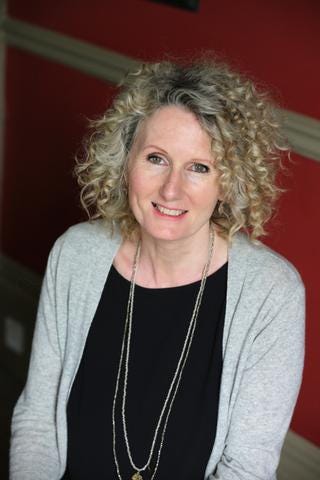
Today I want to introduce Mandie Davis and her wonderful new language-learning method for children including some gorgeously illustrated bilingual books — perfect for your little one. We are totally in awe of her work and the power of her innovative ‘Les Puces’ method — teaching young children the French language.
Mandie Davis has lived in both Germany and France — raising her children in different European countries has lent her a very unique insight into how children pick up and learn languages. Applying her valuable experience across the years she developed the ‘Les Puces’ method which integrates sign language, music, rhymes, activity, storytelling and books to encourage accelerated adoption of other languages.
We did a Q&A to understand Mandie’s work in this field including her UK-based classes and bilingual books for kids.
Q: Tell us a little about you — how did you get into the field of early education? and when did you launch Les Puces?
A: In school, a friend and I formed our own sign language. I loved the idea of communicating in code and being able to talk to someone without others understanding! As a teenager I’d dream about giving my children access to other languages, so when my first daughter was born we’d get books in Portuguese, German and French. Even if I didn’t understand them I’d have a go at reading them to her! Luckily my husband’s job allowed us to move to Germany when the children were very young, and although we were surrounded by Brits I was determined that they wouldn’t leave Germany without speaking the language. Accordingly we sent them to the local kindergarten and school. When my husband retired, we moved to France and repeated the process — the girls attended school there and learnt their third language. I helped in schools in France, teaching English and I also ran an after school club for a few years. That’s where the Les Puces method started to develop.
We all teach our children a language but we don’t have time to think about it, but when they start learning their second or third, you become more of an observer and start to see patterns. On moving back to England I decided I wanted to develop this further and Les Puces was born . When we launched in January 2015 we often had many empty venues or classes — sometimes with just one child attending!
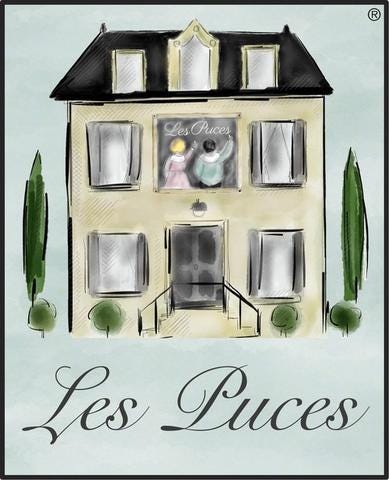
Q: The concept of Les Puces method — by rote/rhyme and music/makeit project and storytelling — how did you develop this framework?
A: The method’s based on the four ways of learning: rote and repetition; music and rhyme; practical use of the language; and listening to stories. When I was teaching in France I discovered that children are naturally drawn to some lessons more than others, and these parts are the ones they internalise from a learning perspective. Just because I read a book from my children’s bookshelf and sang our favourite songs and coloured things printed from the internet, didn’t mean that the learning was integrated. I realised that children who learn best by song may easily grasp the ‘wheels on the bus’ nursery rhyme but may struggle to understand the story of the hungry caterpillar for example.
I was worried about copyright issues (eg. using published work) so the idea of linking all four ways of learning using only our own materials made sense on many levels. Accordingly I write my own books and each book has an accompanying song with actions, a vocabulary sheet, worksheets and a project to make. Here’s an illustrated example of a complete module.
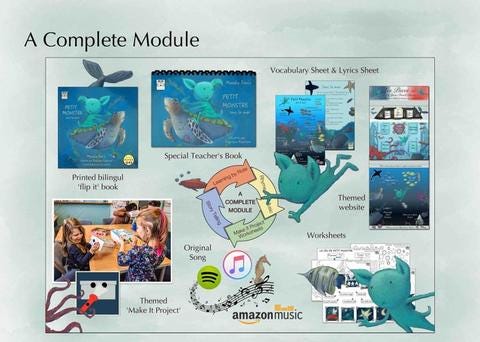
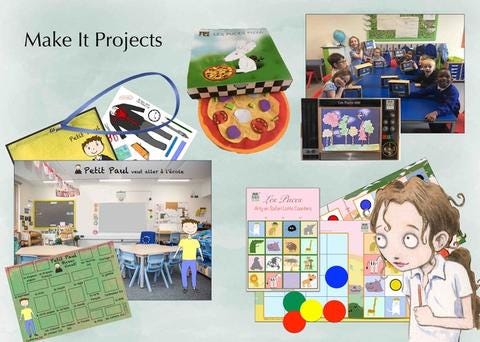
Q: Where are you currently based? A: I live in Tunbridge Wells with my two girls, and my husband still lives in France in our house there! We spend as much time together as we can. Les Puces is active in Kent, East and West Sussex, Hampshire and spreading into London. We have started franchising and our first franchisee is in Hampshire. Our goal is to expand across the UK.
Q: Can you tell me a bit more about all your bilingual books?
A: I write the stories themselves and work with seven amazing illustrators who bring them to life. I try my best to encourage children to explore their world in a particular language, even if they’re learning another language at the same time. Here are two examples of stories that highlight this.
Charlie Rabbit makes a Pizza Illustrations by Alain Blancbec.
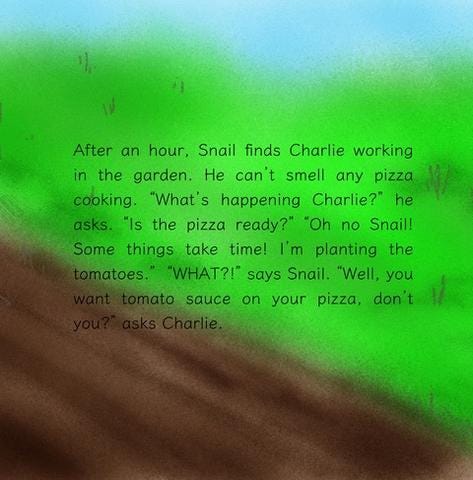
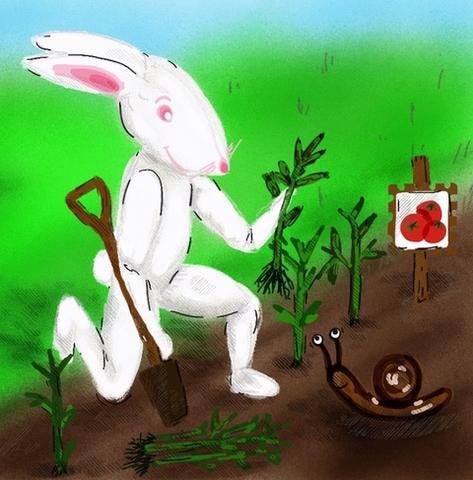
Charlie Rabbit teaches us that good things take time. Charlie Rabbit’s best friend is Snail, a rather impatient character. When Charlie offers to make pizza for dinner, Snail’s disappointed when he arrives that evening and finds Charlie in the garden rather than in the kitchen. Charlie’s planting tomato plants. “Well you want tomato sauce on your pizza don’t you Snail?” He asks. Charlie explains that the flour is made from wheat, where the olive oil, salt and mozzarella come from and the water is filtered through rocks. Snail’s worried that he’s never going to see this pizza but (spoiler alert!) in the end the two friends sit down in the garden on a summer’s evening to enjoy the best pizza they’ve ever tasted! In our classes the children create a play pizza. They take this home in a special Charlie pizza box together with decorated chefs hats and practise their learning at home.
The Other Way into Town
Illustrations by Pete Williamson
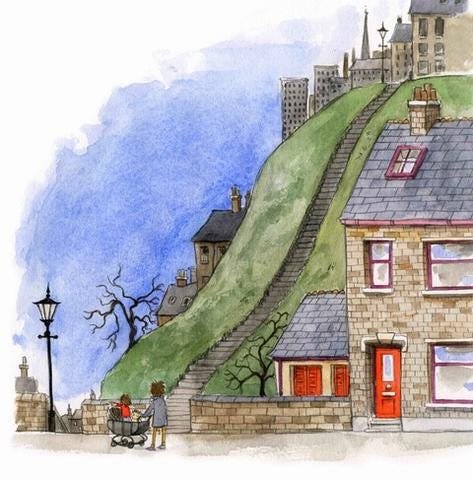
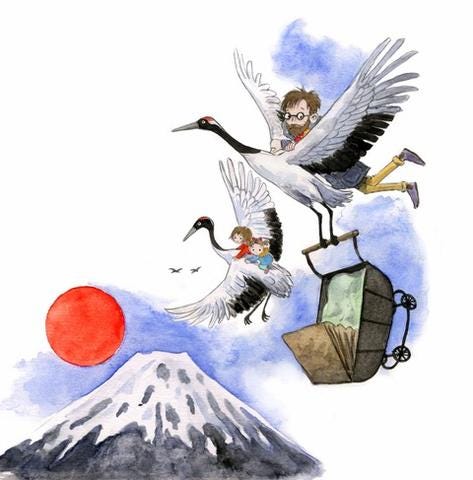
This story’s been swimming in my head since my eldest daughter, India, was four (she’s now at university). We lived by the sea, at the bottom of a steep hill which you had to climb to get into town. New baby Willow was in the pram. India had to walk up the hill with me and Willow. It was a difficult walk uphill.
One day she pointed in the opposite (flatter) direction and asked “Can’t we walk the other way into town?” Of course I said ‘no’ because town is this way, but it got me thinking. The world is round so we could technically walk the other way into town although it would take some time! In the story itself, there’s a dad with two girls.
When asked ‘can we go the other way into town’ dad answers yes! They reach the sea, get on a ferry and the adventure begins.
They explore some interesting countries and places around the world before finally arriving back home with their Christmas shopping which they’ve collected on the way. When I was writing this book I travelled around the world on Google Earth and tried to find places that children might want to explore themselves.
In the middle of the book we illustrate a map highlighting the route. The children in the classes create a lamp from scratch with a map and pictures of dad and the two children on their adventure.
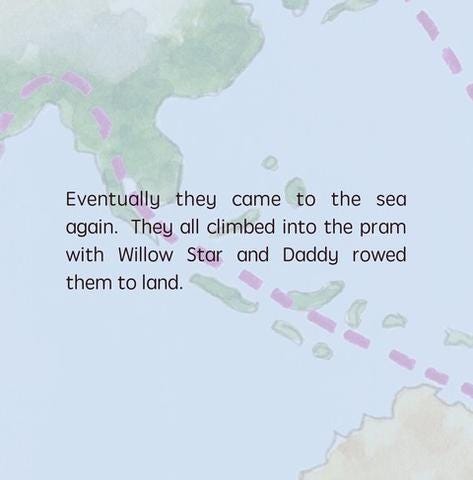
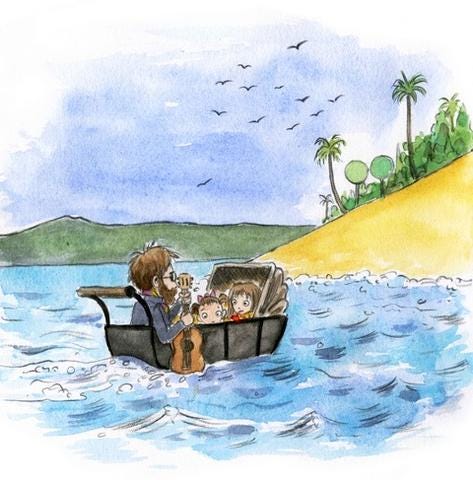
Q: I have never come across bilingual books before — are yours unique to the market? And do they work as literal translations between French and English?
A: I knew that I wanted to use bilingual books in the classes but every example I found documented both languages on the same page. It’s impossible to avoid reading your source language, which is essentially cheating! I didn’t think it would be helpful to teach using those materials.
In the end we crafted our own type of bilingual books called the ‘Flip It’ style! I haven’t seen anything else like them yet, but I don’t want to claim that they’re unique. They’re literal translations between French on one side and English on the other. We’ve translated them into other languages too. The Arabic version is particularly interesting because Arabic reads back to front meaning you don’t need the ‘Flip It’ style. You can simply start reading the book from the back, and what you have instead is two front covers. We also had to reverse the images to allow for the fact that the eye would be travelling across the page in a different way for Arabic readers.
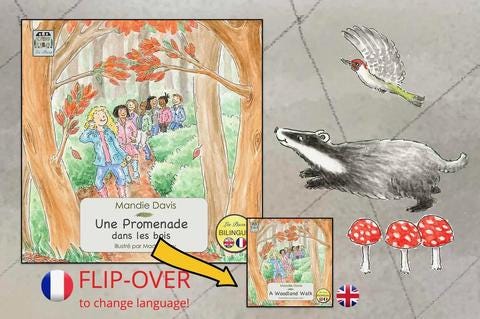
Q: The franchises also seem to work well for mums who may want to get involved in early education and run their business at the same time. Could you tell us a bit more about how that works and how interested mums can find out more?
A: At the moment we only offer management franchises — you don’t have to teach classes yourself, but you’re in charge of an area with a team of teachers working for you.
I am interested though in exploring the idea of smaller franchises where the teacher is the franchisee and also teaches the classes in their designated area. This would obviously be a cheaper version and I’d be happy to discuss both types of franchises with anyone who’d like more information.
Q: Mums can also become teachers — how does this differ from opening your own franchise?
A: Mums, dads or anyone else can become teachers with us! We provide all the materials to our teachers and all modules are taught to the same timetable at the same time.
This means that we can all support each other as a team even though geographically we’re not close.
We’re always happy to hear from fluent French speakers who’d like to teach with us. Even if we don’t have schools set up in your area at that moment, we can find something for you. You don’t have to be native French but you do have to be confident.
You can explore more of Mandie’s work at www.lespuces.co.uk, including the classes, the gorgeous bilingual books and the wonderful franchising opportunities for those of you considering a home-based business in early education.
-----------------------------------------------------------------------------------------------
More book prescriptions can be found at our A-Z of Book Prescriptions.
A big hello and thank you for reading! Passionate about literature, psychology, and life I launched Book Therapy as an alternative form of therapy using the power of literature. I create reading lists/personalised book prescriptions based on your individual needs, this is my signature personalised reading service. You can also check out Book Therapy’s other free reading lists and A- Z of book prescriptions (covering both fiction and non-fiction). These suggest books based on your existing life situation (e.g. anxiety, job change, relationship heartache) as well as interests (e.g memoir, historical fiction, non-fiction, crime etc). There’s also a Children’s A — Z of Book Prescriptions. Feel free to check out the blog for more literary gems. There’s also a post on my personal story of how I entered the world of bibliotherapy and book curation. And if you’d like to connect, email me at bijal@booktherapy.io or www.booktherapy.io.
Book Therapy is a participant in the Amazon EU, US and Canada Associates Programme, an affiliate advertising programme designed to provide a means for sites to earn advertising fees by advertising and linking to Amazon.co.uk, Amazon.com and Amazon.ca
Share this post
- 0 comment
- Tags: best bilingual books, best books for learning french, book recommendations for bilingual books, french books for kids, french books for kids children's french literature
